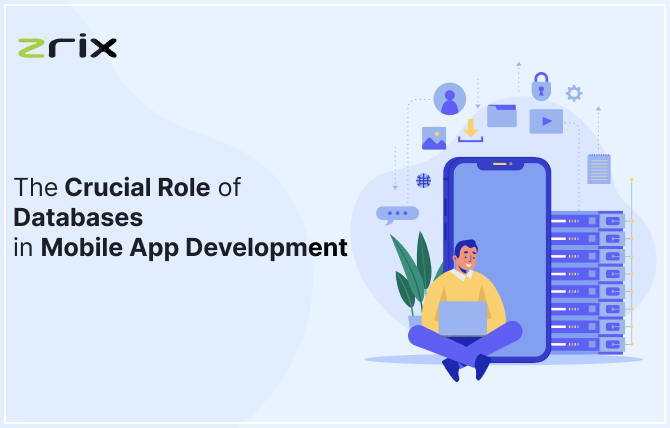The Crucial Role of Databases in Mobile App Development

In the rapidly evolving landscape of mobile app development, one often-underestimated hero plays a pivotal role in ensuring seamless functionality and user experience: the database. Behind every tap, swipe, and interaction in your favorite mobile apps, databases quietly manage and store data, making them the unsung heroes of the digital realm. In this blog, we'll delve into the essential role databases play in mobile app development and why they are crucial for delivering top-notch user experiences.
Table of Content
The Foundation of Data Storage:
At its core, a database serves as a structured repository for storing and organizing data. In the context of mobile apps, databases hold a wide range of information, from user profiles and preferences to content, messages, and transactions. Without an efficient and robust database system, mobile apps would struggle to deliver content, track user activity, and maintain the personalized experiences users expect.
Key Aspects of Databases in Mobile App Development:
- Data Management: Databases enable apps to handle and process data effectively. Whether it's storing user-generated content, managing inventory for e-commerce apps, or tracking progress in fitness apps, databases are the behind-the-scenes champions.
- Offline Access: Mobile apps often need to function even when a reliable internet connection isn't available. Databases make this possible by storing data locally, allowing users to interact with the app and sync changes once they're back online.
- Real-time Updates: Databases enable real-time updates, crucial for apps that require dynamic data, such as messaging apps or collaborative tools. Users can see changes instantly without the need for constant manual refreshes.
- Personalization: Databases empower apps to deliver personalized experiences by storing user preferences and history. This information allows apps to offer tailored recommendations, content, and settings.
- Scalability: As apps gain popularity and attract more users, databases must handle increasing loads. A well-designed database system can scale horizontally or vertically to accommodate growing user bases.
- Security and Privacy: Databases ensure sensitive user data is securely stored and protected. Encryption, access controls, and proper data handling practices are essential to maintain user trust.
Types of Databases in Mobile App Development:
- Relational Databases: Traditional databases with structured tables and predefined relationships. They're excellent for apps with complex data models like e-commerce platforms.
- NoSQL Databases: Suitable for apps with rapidly changing data or varying data formats. NoSQL databases offer flexibility and can handle unstructured data effectively.
- In-Memory Databases: Designed for lightning-fast data retrieval, in-memory databases are ideal for apps that demand near-instantaneous responses, like real-time gaming or financial trading apps.
Choosing the Right Database:
Selecting the right database depends on the nature of your app, its data requirements, and scalability needs. Whether it's SQLite, MySQL, MongoDB, or Firebase, understanding your app's data needs will guide your choice.
In Conclusion:
Behind every successful mobile app is a robust and well-designed database system. From handling data storage to ensuring offline functionality and delivering real-time updates, databases are the unsung heroes that enable apps to provide exceptional user experiences. As mobile app development continues to evolve, databases will remain a critical component, ensuring that the apps we use seamlessly integrate data and functionality for a world at our fingertips.












